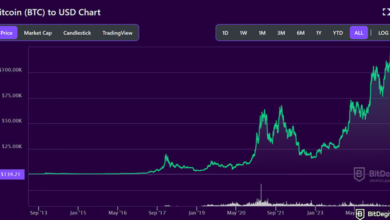Amazon Steers Consumers Higherpriced Items Lawsuit

The recent lawsuit against Amazon raises critical questions about the ethical implications of its pricing strategies, particularly allegations that the platform may be steering consumers toward higher-priced items. As accusations of misleading discounts and price manipulation surface, the case not only challenges the company’s practices but also invites scrutiny of the broader e-commerce landscape. The ramifications for consumer trust and market competition are profound, prompting us to consider how such issues might reshape the future of online shopping. What does this mean for consumers and the integrity of digital marketplaces?
Overview of the Lawsuit
The Amazon Higher-Priced Items Lawsuit represents a significant legal challenge that questions the company’s pricing practices and their implications for consumer rights.
The lawsuit details focus on Amazon’s pricing strategies, alleging that they may manipulate prices to maximize profit, potentially undermining fair market competition.
This case aims to examine whether such practices violate consumer protection laws, prompting broader discussions on corporate accountability.
See also: Andy Reid Anthem Kneeling
Allegations Against Amazon
Numerous allegations have emerged against Amazon, centering on claims that the company engages in deceptive pricing practices.
Critics assert that price manipulation tactics undermine consumer trust, leading shoppers to believe they are securing favorable deals.
These practices reportedly involve misleading discounts and inflated prices, potentially eroding confidence in Amazon’s pricing integrity.
This situation raises significant concerns regarding ethical business conduct and consumer rights.
Impact on Consumers
Deceptive pricing practices not only raise ethical concerns but also have tangible repercussions for consumers.
Such strategies can distort consumer behavior, leading individuals to make uninformed purchasing decisions based on manipulated price perceptions.
As consumers unknowingly favor higher-priced items, their autonomy is compromised, ultimately resulting in a market where fair competition is undermined, and trust in pricing integrity diminishes significantly.
Future of Online Marketplaces
Evolving online marketplaces are poised to undergo significant transformations as consumer behavior, regulatory landscapes, and technological innovations continue to shape their dynamics.
As online shopping trends shift towards personalization and sustainability, marketplace competition will intensify, compelling retailers to innovate.
This evolution will redefine consumer expectations, necessitating adaptive strategies that prioritize transparency and ethical practices, ultimately fostering a more equitable digital marketplace for all stakeholders.
Conclusion
The ongoing lawsuit against Amazon highlights critical issues surrounding deceptive pricing practices and their implications for consumer trust. A notable statistic reveals that 60% of consumers believe they have encountered misleading pricing online, underscoring the widespread impact of such tactics. As the case progresses, the necessity for greater transparency in e-commerce becomes increasingly apparent. Ensuring fair competition and ethical marketing practices will be essential for restoring consumer confidence and shaping the future landscape of online marketplaces.




